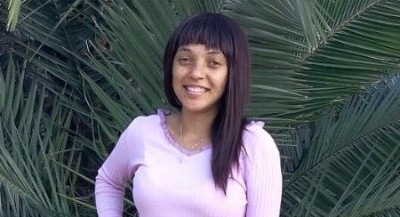“Out in the world when people see me, or speak to me, they do not just see an individual, they see me as part of the Jewish people. it is no longer ‘her’ but ‘they’, referring to the Jewish people.”
The Interviewee – Simcha Butchart (Born 1989) Teacher/Artist. I was born in Harare, the capital city of Zimbabwe. I come from a small family. My father died when I was 10 years old, my mother raised my two sisters and I on her own. I also have a nephew who i love very much. I am an artistic person who loves chances to express my creativity. I care about my relationship with G-d, Judaism, spirituality, my family, I care about people. I am vegan and care about making a difference in the environment and the world we live in.
In your opinion, what importance, if any, does the existence of a Jewish state have to you personally and to Jewish people in general?
“Personally to me it is of great importance, that regardless of where I am in the world, I feel there is that one place I look to for hope as a Jew, spiritually, physically. In general a state where Jews all over the world share something together, something that would unite them, something they can claim as having a part of.”
Do you feel committed in some way to defend the future existence of Israel?
“I do, the spiritual significance of Israel matters to me. Our forefathers felt committed, they strove for it’s existence. It matters to me too.”
Do you affiliate yourself with a specific denomination in Judaism? What is your view regarding the dominance of the Orthodox denomination in Israel religious establishment?
“I affiliate myself with Orthodoxy. I feel Israel should be home to all Jews regardless of their affiliation to specific denominations in Judaism.”
Do you feel morally responsible for Israel’s actions (such as its management of the Israeli-Palestinian conflict?
“I do, because out in the world when people see me, or speak to me, they do not just see an individual, they see me as part of the Jewish people. It is no longer “her” but “they”, referring to the Jewish people. This issue is often one of the first things people like to ask and discuss. Whether I am in Israel or not , people expect me to have the answers.”
In your opinion, what is the main thing Israelis fail to understand about the reality of being Jewish outside of Israel?
“Personally, the understanding that there are Jews in Africa can be surprising to people, better yet Jews of color. Jews who have their own cultural identity and tradition but regardless of the color of their skin or Ethnicity, still feel a deep connection to Jews worldwide, and Israel.”
How would you describe Israel’s policy (formally and in practice) regarding its relationship with the Diaspora?
“I feel learning to understand the individual situations of Jewish communities outside of Israel is valuable, more needs to be advocated for regarding that.”
In your opinion, does Israel have an obligation to defend and help Jewish communities in need?
“Yes, but not just Israel, but that all Jews have an obligation to each other, in and out of Israel.”
Have you ever been to Israel?
“I have never been, but I do hope to.”
Can you tell us a bit about the Jewish community in your hometown? Is it organized? Are there any community activities?
“In Harare we have three different Synagogues. The Sephardi Community and Ashkenazi Community have combined services. We also have the Harare Lemba Synagogue, the other Lemba Synagogue is situated outside of Harare in Mapokomere.
“Jewish life in Zimbabwe is difficult, we do not have access to Jewish resources within our country, it is not like we can walk into a store a buy Kosher certified food, or walk to the nearest Judaica store, we do not have that. Livelihood is also difficult due to antisemitism, where choosing between your faith and your job that provides a means for you to survive is a reality in my community. Yet somehow we do not give up, we do what we can.”

